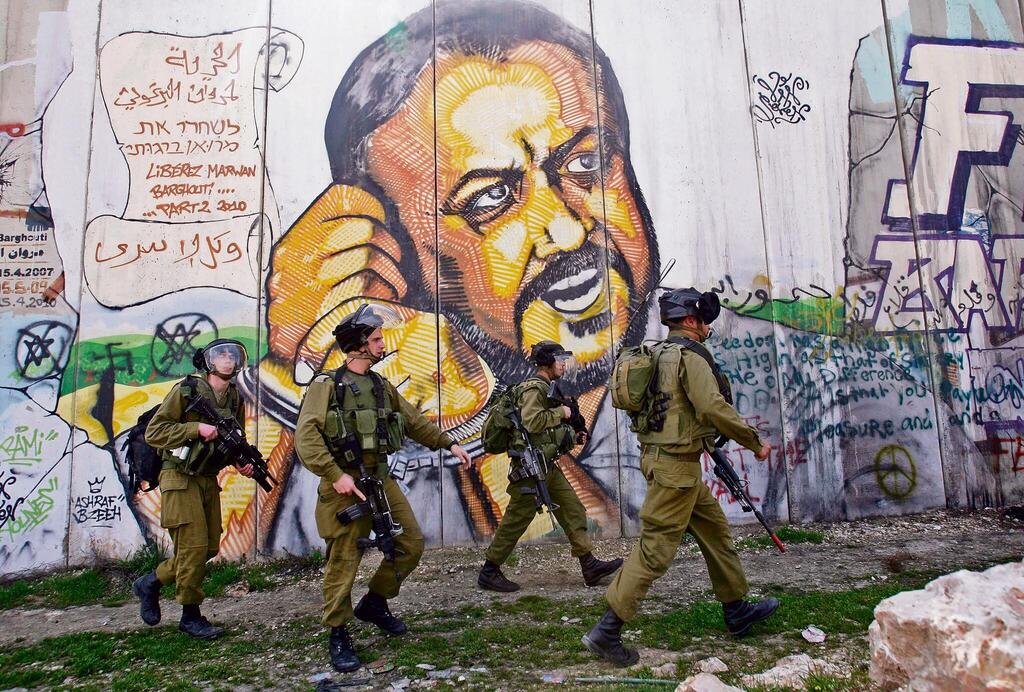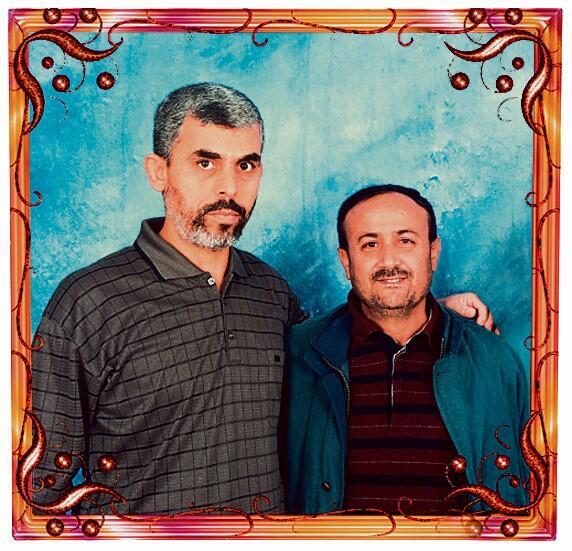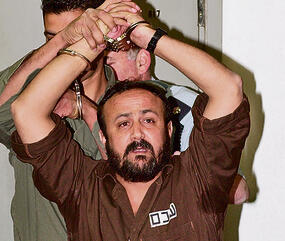Getting your Trinity Audio player ready...
“We are not familiar with the information provided by the media on the possibility that Marwan Barghouti will be released as part of the deal and exiled to Turkey”, stated his son, Qassam in an interview. One week since his return from Qatar, where his family reportedly discussed the possibility of including his father in the deal with senior Hamas officials, he shared: “We are comparatively more optimistic. As a family, we don’t care where he is released to, it can even be to Kuala-Lumpur”. An “Israeli senior official” responded to the media reports on the subject swiftly and decidedly, stating: “There is no discussion of Barghouti being released”.
The dilemma whether or not to release Barghouti - One of the senior leaders of Fatah - has been deliberated for over two decades, and has received greater attention since October 7, as the chances of his release as part of a deal for the release of security prisoners in exchange for Israeli hostages held in Gaza seem to be growing.
Over the years, it has been argued among in Israeli politics and media that Barghouti is a leader with considerable clout, and that, despite his involvement in terror attacks during the Second Intifada that killed 5, for which he has been sentenced to life in prison, he remains true to the peace negotiations, and is expected to pursue a two-state solution. Others claim that he is a “mini-Arafat”, whose loyalties lie with militarism, and who will surely advance a violent struggle upon his release.
Barghouti is both a national symbol and a mystery. This 65-year-old leader, who was born in Kufr Kobar, a village near Ramallah, represents the generation that grew up in the West Bank and Gaza Strip during the 1970s and 1980s, forming a defiant alternative for the founding generation headed by Arafat, who came from Tunisia and took over the Palestinian Authority. Like many of his peers, he too knows Israel well, speaks Hebrew, and has held many meetings with Israelis prior to the Second Intifada.
The mystery stems from the fact that, although he has been absent for over two decades (nearly one third of his life), Marwan Barghouti remains the most popular candidate for leading the Palestinian system. Public opinion polls conducted over the past decade have consistently shown him to beat any other candidate in any election scenario, including Hamas representatives. Many Palestinians explain this strange phenomenon by claiming that the people look up to "Barghouti the symbol", despite being unfamiliar with "Marwan the man". The public at large, and particularly the younger generation, born after he had been incarcerated, view him as the epiphany of national ideals, primarily resistance and sacrifice.
Hamas is equally aware of the potential Barghouti harbors, and it is no surprise, therefore, that they, too, insist that he be released. In their view, this could yield two gains for the terror organization: establishing an image of the war spurred by Hamas as a national campaign that has led to achievements for all Palestinians; and the return to the playing field of a beloved leader who, unlike most senior Palestinian Authority officials, shares similar views to those of Hamas, and with whom reconciliation may be reached, which would enable the terror organization to gain much-coveted presence in the West Bank.
The Palestinian Authority is fostering a more ambivalent approach toward Barghouti. Publicly, its senior officials support his release from Israeli prison, yet many in Ramallah are concerned about the possibility that he would become a dominant rival in the race for Abu Mazen’s throne, and worry that he will promote a reconciliation with Hamas. “Barghouti’s release will be bad news for Israel, but also for many who enjoy his very presence”, remarked a senior Fatah official in Nablus Hussam Khader sardonically, while Fadwa, Barghouti’s wife, chose her words carefully: “The Palestinian Authority itself is interested in Barghouti’s release, but some parties are not so inclined, and are not true Palestinian patriots”.
Israel’s primary concern over Barghouti’s possible release is that he will use his freedom to promote violence. The assessment that he will do so is based, inter alia, on statements he has issued while in prison glorifying the armed struggle. His son, Qassam, however, said: “They are scaring you for nothing. My father is the ultimate partner for Israel, he is true to the two-state vision, has garnered support across the Palestinian public, and can serve as a stable, uniting, and agreed point of contact for the Palestinian side”.
Although Israel denies it, Barghouti may indeed be released, and reintegrated once more into the Palestinian system very soon, whether he is exiled overseas, returns to the West Bank, or, in the less likely turn of events, ends up in Gaza. Israel fears that, upon his release, Barghouti will advocate violence, while pursuing reconciliation with Hamas, forcing Israel to take action, particularly if he will be back in the West Bank. Yet a more complex scenario will generate a second “Jolani dilemma”, meaning an attempt on Barghouti’s part to appear moderate like Syria`s current ruler - including engaging in direct talks with Western and Israeli officials - while keeping them wondering whether it is merely a smokescreen masking an extremist’s vision.
Get the Ynetnews app on your smartphone: Google Play: https://bit.ly/4eJ37pE | Apple App Store: https://bit.ly/3ZL7iNv
Even if Barghouti will not be included in the deal, he is expected to affect the Palestinian sphere, and, in turn, Israel too. He is determined to run for the presidency in any future Palestinian elections, even from within prison walls. In the seemingly likely event that he will win them; Israel will be subject to heavy international pressure. Such a development could also lead to protest and confusion within the Palestinian Authority as it finds itself being led by a man who is being imprisoned by the very country against which he is calling his people to fight, while engaging in close civil and security coordination with Israel. Be it from prison or the squares of Ramallah, it seems the name Barghouti will be on the lips of both nations, the Middle East, and the international community for a long time to come.
Dr. Michael Milshtein is the head of the Forum for Palestinian Studies at the Dayan Center of Tel Aviv University.





